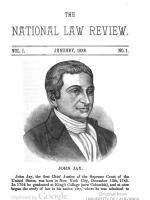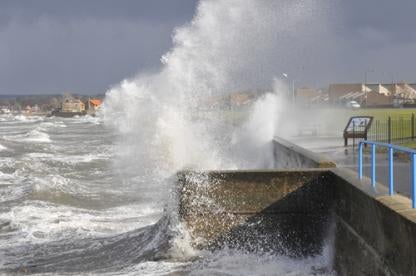The stakes were very high: Puerto Rican refugees, victims of Hurricane Maria were about to become homeless as FEMA planned to cancel it’s Temporary Shelter Assistance program. Thousands of refugees living in hotels and motels would find themselves evicted, many having nowhere to go. A telephonic hearing and a last minute ruling required FEMA to continue the program, but the legal battle continues. Offering insight on the issues at hand are attorneys Craig de Recat and Justin Jones Rodriguez of the law firm Manatt, Phelps & Phillips, who, along with Eve Torres of Manatt, LatinoJustice and the Law Offices of Hector E. Pineiro, are working hard to ensure the victims of Hurricane Maria receive the proper assistance and due process they deserve under the law, holding FEMA accountable to their responsibilities to individuals who have already lost so much.
FEMA announced plan to terminate the Transitional Sheltering Assistance program for victims of Hurricane Maria on June 30th. The previously mentioned partners filed a lawsuit and emergency motion for a Temporary Restraining Order, a move that would fend off the evictions and compel FEMA to continue providing rent subsidies. After a telephone conference that evening, Federal Judge Leo Sorokin issued a temporary restraining order to provide shelter throughout the weekend and through the 4th of July holiday. On July 2nd, another hearing was held with Judge Hillman, who issued a TRO extending the program for a longer stretch of time.
Discrimination in FEMA’s Response Efforts A Major Issue in Litigation
Justin Jones Rodriguez, an attorney with Manatt, said: “we had a hearing on August first and the judge recognized there were some unanswered questions, particularly about our discrimination claim.” The hearing on August 1st extended the TSA program until the end of August, and allows evidence to be gathered and testimony to be given and considered. That said, Rodriguez says, “We believe the facts are clear here that hurricane victims after Harvey in Texas are treated one way and hurricane victims in Puerto Rico after Maria were treated a very different way. “ Craig de Recat, also with Manatt, compares FEMA treatment of Hurricane Maria victims with the FEMA treatment of Hurricane Harvey, pointing out that Puerto Ricans hold a dual nationality, but are US citizens nonetheless, and are entitled to FEMA relief. He says:
The facts are abundantly clear and even confirmed by FEMA in its post-incident report, showing that they did not treat Puerto Rican refugees, including these individuals that are in the continental United States in the same way they treated Harvey Refugees. Harvey Refugees had a much quicker response, a much more robust response, were promised financial aid for a longer period of time and an assurance that they were going to be given personal individual case management support to help the individuals and their families.
One way this discrimination case is laid out is the complaint is through comparison of Presidential tweets on the respective tragedies. The complaint points to a tweet on September 30, 2017 from President Trump that says: “Puerto Ricans ‘want everything to be done for them.’” Roughly two weeks later, President Trump sent out a tweet that said FEMA and other disaster relief could not stay in Puerto Rico “forever!” In comparison, two weeks after Hurricane Harvey hit Texas and after the President had visited the state, he tweeted: “After witnessing first hand [sic] the horror & devastation caused by Hurricane Harvey, my heart goes out even more so to the great people of Texas.” The complaint goes into greater detail, comparing the response of FEMA on several levels as being discriminatory against the victims of Hurricane Maria, everything from the initial rate of individual grant denials being double in response to Hurricane Maria than for Hurricane Harvey, and pointing out that even though Hurricane Maria destroyed more homes in Puerto Rico than Hurricane Harvey did in Texas, the relief has overwhelmingly been provided to Texans--of the 60,000 households provided housing assistance by FEMA, over 54,000 of the affected households receiving relief were devastated by Harvey--not Maria.
FEMA Failed to Provide Appropriate Due Process
Another claim against FEMA is their failure to provide the victims of Hurricane Maria with due process under the law. De Recat points out that if FEMA Is going to pull services, they have a responsibility to provide the individuals affected with information on how to appeal that decision. He says: “If FEMA is saying, we are not going to give you financial assistance or we're not going to help you anymore, then those individuals should be provided with knowledge of how they can appeal that decision. That is a fundamental due process right that all Americans have and that is not being given to these people. They're just given a summary determination without any right or knowledge of their right of appeal.”
Making a comparison again, to Hurricane Harvey victims, Rodriguez points out that FEMA had provided case management services to victims of Hurricane Harvey, ensuring each individual and family had a place to go when the TSA program terminated. However, victims of Hurricane Maria were not given the same level of attention. Rodriguez says, “Case management services consisted of a published toll free telephone number posted for them to call, which we've received reports that it wasn’t working.”
The case continues, and attorneys representing the Hurricane Maria victims remain dedicated to seeking a legal solution and holding FEMA to the appropriate standard. Rodriguez, when asked about his involvement, says simply, “It's the right thing to do. When Latino Justice reached out to me I was happy to jump on board as an individual. It would be dishonest for me to say that I'm not motivated by the fact that I'm a Hispanic American and the way that these Puerto Rican individuals are being treated by the administration is unjust and unconstitutional.” de Recat says it is a privilege to represent the victims of Hurricane Maria and to stand with them against this injustice. He says, “when we have opportunities like this to step in and help the disenfranchised or the least powerful of our community, then that is part of our obligation, our duty as practicing lawyers within the profession, and I don't mean to sound corny, but It is a privilege to represent these people and to stand by them and for them. And that is personally enormously rewarding.“
A decision is expected in this case by August 31st.




 i
i

